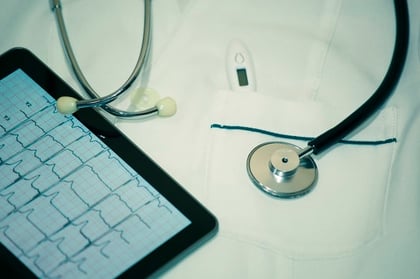
Protecting the privacy and security of health information requires more than a lock and a key. In order to keep your patients' records secured, you must take advantage of the benefits of digital record keeping.
What makes digital health records so much better than paper ones?
Risks of having physical-only patient records
Physical patient records are made of paper. This means that the only way that you can secure them against theft or destruction is to lock them in a box. Even the most inexperienced thief can breach this security measure. There are also disasters such as fire, smoke and flooding that will seep through cracks to destroy your paper records.
How digitizing healthcare records enhances your patient information security
Digital health records create new opportunities for enhanced privacy and security of health information. Because they are stored on a drive or on a secured cloud server, nobody can simply steal this information. Even if someone managed to access it, digital health information can be rendered unreadable to unauthorized individuals with multiple layers of encryption. On-site storage devices for digital health records can be stored in a disaster-resistant case for the duration of their life or cloud access can make them completely immune to damage at your facilities.
How to implement an effective set of digital healthcare record security measures
Enhancing the privacy and security of health information with digital health records isn't as simple as transcribing patient information onto a computer. Here are the steps that you need to take for this to work:
Understand your healthcare organization's unique information security needs
Carefully consider where you will store sensitive data, who will have access to it and when, whether or not you will outsource or hire IT support, and other security facts specific to your organization. This will prevent avoidable security mishaps in the future.
Create digital copies of health records and destroy paper versions as needed
To secure your health records digitally, they must exist as digital files. Scan all of your health records (if you have too many to handle yourself, then hire a professional service to do this), and destroy redundant paper records as necessary. Also keep in mind that when working with other healthcare organizations, you may be sent physical health records. Prepare for this by investing in a powerful scanning solution that can quickly convert these records to digital files that can be secured by your system.
Implement a reliable document security system
A document security system will ensure that your health records are fully protected while they are being stored and when you share them. This system will also provide you will full control over every element of your health record security. For instance, you could instantly revoke document access within a few minutes of terminating an employee from your healthcare organization.
Create an information security policy for your employees
Your healthcare organization's information security capabilities won't matter if your employees leave everything vulnerable anyway. Implement an information security policy that makes everything that needs to be done clear.
Also be prepared in the event of a data breach with a rapid response plan. If a data breach is detected, your employees should be aware of what steps to take to prevent any further damage or for recovery.
Enhance the way you protect your health records with digital technology
With the proper system and tools in place, you can enhance the privacy and security of health information significantly. When you upgrade to digital healthcare security, make sure to use the right tools and procedures.

